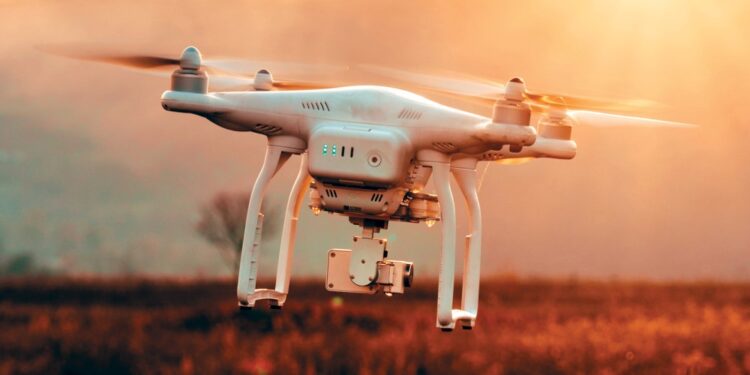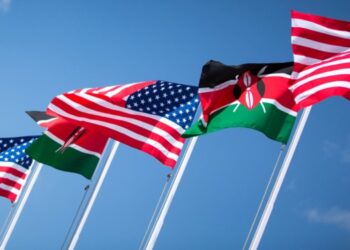Innovations in Unmanned Aircraft Systems (UAS) or Unmanned Aerial Vehicles (UAV), commonly known as drones, has been accelerating at such an exponential rate. The capabilities of this technology are limitless – such as photography, filming, rescue missions, delivering items, precision agriculture, wildlife management, inspection of power grid, construction, solar inspection, research, crop spraying and data collection, forest management, road traffic monitoring and surveillance, and aerial mapping.
In Kenya, only citizens, residents, businesses and governments are eligible to own a drone. This would exclude foreign tourists and the only option left would be to rent a drone locally. However, the law also provides for a 30-day temporary permit that may be suitable for travelers. Drones now have to be registered with the Kenya Civil Aviation Authority (KCAA) and a certificate will be issued.
Considerations for owning and operating drones in Kenya
Those interested in owning and operating drones in Kenya should be aware of the following things.
- Importing or exporting drones is only allowed with the approval of the KCAA.
- A person shall not transfer ownership of a drone without the approval of the KCAA.
- Operators must register their drone with the KCAA and be issued with a certificate of registration.
- All drone operations must be conducted under a specific operational category based on risk factors.
- Only the national government is allowed to run drones with military specs.
- Drones should be identifiable, which means the registration data will likely have to be attached visibly.
- Be aware of the following registration and licensing considerations:
- The national security of the state.
- Terrorism or organized crime activities.
- Risk of public safety and diversion of drones to unauthorized end user.
- If the application is subject of investigation in a civil or criminal case related to national security.
- A drone license can be suspended or canceled in the interest of public safety or national security, or for violating requirements and conditions.
Rules for drone pilots in Kenya
Here are the rules governing operation of drones in Kenya.
- Kenya categorizes drones according to the risk of the flights:
- Category A: low risk (up to 25 kg).
- Category B: medium, normal risk.
- Category C: high risk.
- A Remote Pilot License is necessary for flights in categories B and C. In category A, registration, a permit certificate and compliance with the following rules and safety distances are sufficient.
- Drones shall not fly above 400 feet AGL or within 164 feet (50 meters) of any person, vessel, or vehicle that is not apart of the operation. Keep a distance of 50 meters from people, animals, vehicles, vessels, buildings and structures.
- No person shall operate an Unmanned Aircraft System over a public road or along the public road of at a distance of less than 164 feet (50 meters).
- A public roadway shall not be used as a place of landing or take-off of a drone.
- Operating a drone within 6.2 miles (10 kilometers) of an airport from the airport reference point for code C, D, E, and F airports is prohibited without authorization. There is a 10 km safety distance around category C, D, E and F aerodromes.
- Operating a drone within 4.3 miles (7 kilometers) of an airport from the airport reference point for code A and B airports is prohibited without authorization. There is a 7 km safety distance around category A and B aerodromes.
- A pilot shall not fly a drone in non-Visual Meteorological Conditions. Drone flights may only take place within visual line of sight and in good weather conditions. Night flights are only allowed with prior approval.
- Flights over private property are not permitted without prior approval. Crossing international borders is also prohibited.
- Drone pilots must not have consumed alcohol less than 8 hours before the flight. The limit is 0.04 grams per 100 milliliters. Flying is also not allowed under the influence of drugs and other substances.
Requirements for owning and operating a drone in Kenya
Those interested in owning and operating drones should meet the following requirements.
- A Kenyan citizen or resident must be at least 18 years old in order to own and operate a drone.
- Applicants should have a company registered in Kenya. National or county governments are also eligible for ownership.
- Users can apply for a temporary permit lasting up to 30 days and can only be renewed once.
- Commercial drone operations require a pilot to obtain a Remote Aircraft Operators Certificate (ROC) from the Authority, which must be applied for at least 90 days in advance. The issuance of an ROC by the Authority is dependent upon the UAS operator demonstrating an adequate organization, method of control and supervision of flight operations, training program as well as ground handling and maintenance arrangements consistent with the nature and extent of the operations specified and commensurate with the size, structure, and complexity of the organization.
Regulatory fees and charges for Unmanned Aircraft Systems
Here are the regulatory fees and charges that the Kenya Civil Aviation Authority (KCAA) imposes for drone ownership and registration.
- To bring a drone into the country you will have to pay an importation fee of Ksh 3,000. You will also be required to register with KCAA for the same amount.
- To operate a drone in the Kenyan Airspace, you will also be required to have a Remote Operators Certificate which will be issued for Ksh 80,000 every year and whose renewal will be done at Ksh 50,000. Similar fees will apply for licences to those who wish to open drone training schools and those who wish to sell drones.
- In Kenya, only citizens, residents, businesses and governments are eligible to own a drone. Foreigners will only be able to lease a drone locally. However, the law also provides for a 30-day temporary permit that may be suitable for travellers. To get such a permit, you will part with Ksh 20,000.
- You will also need an airworthiness certificate that costs $50 (about Ksh 5000) while other charges ranging between Ksh 2,000 and Ksh 5,000 for services and certifications such as “Beyond Visual line of sight” and “Radio telephone exam” will also apply.
















Hola Victor.
Viajare en diciembre a kenya uganda y tanzania y tengo un dron (dji mini) de 249g con el que no he tenido problemas nunca en ningún pais. Se que no podré volarlo en parques nacionales pero me gustaría filmar playas etc..
Sabes que puedo hacer para llevarlo??
Un saludo